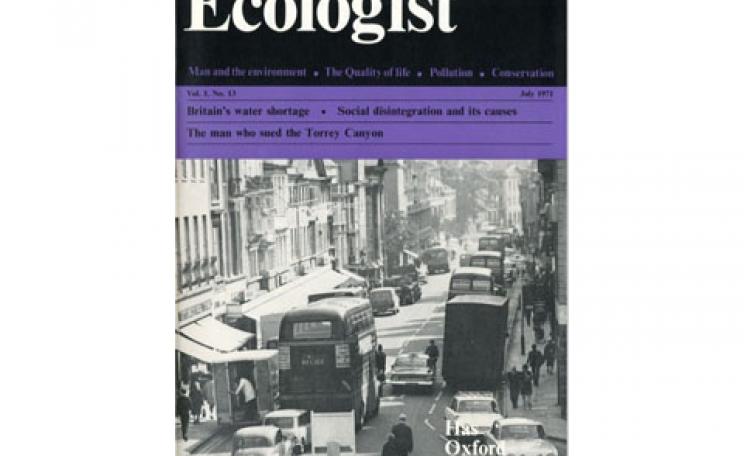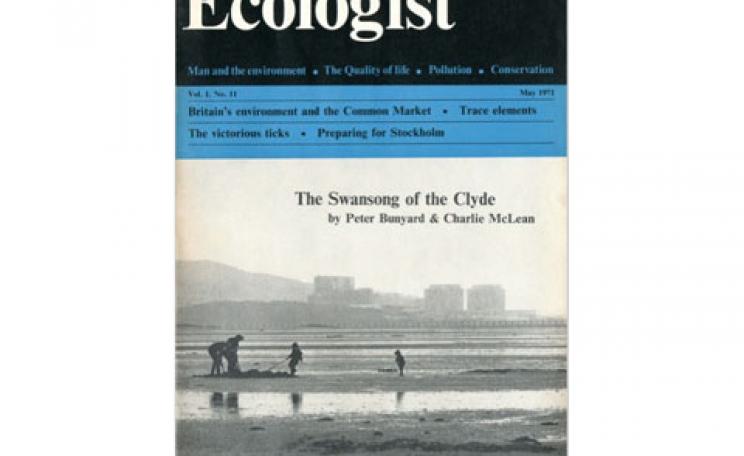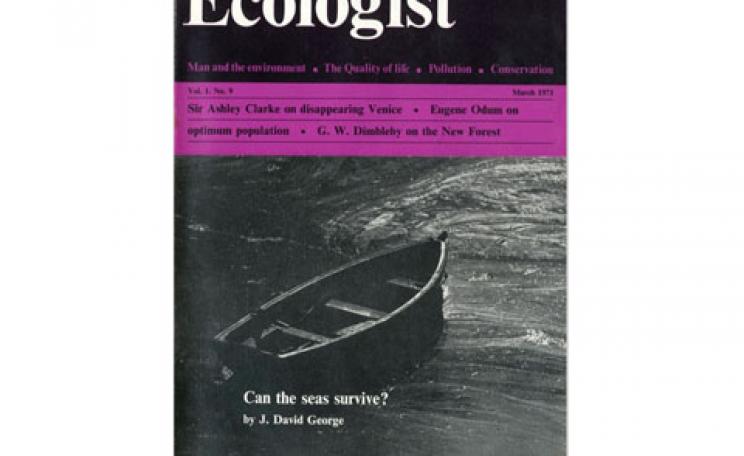In August 1971, Robert Allen wrote a simple and practical guide of do’s and don’ts that individuals should adhere to in order to cut down their waste production. Scanning through the list, Allen advises recycling, keeping a compost heap, not buying disposable goods, not littering and also addresses issues of unnecessarily leaving heaters, lights and taps on for too long; a seemingly familiar list of instructions that any modern day environmentalist could reel off.
Admittedly, there have been vast improvements in many of these areas over the last 40 years. Big business has seen the economic benefit of recycling, while governments and councils have recognised its importance and made recycling an indelible part of regional and local policy. Where once green living may have been construed as ‘embarrassing’, green bins, roadside collection, drop-off centres and high street recycle bins are now common place; indeed, UK Energy Saving Trust assures us that the proportion of recycled household waste is increasing yearly.
In supermarkets too, labels displaying ‘25 per cent less packaging’ or ‘made from 100 per cent recycled material’, are plastered over many of the products lining the shelves and re-usable jute and hessian bags are slowly but surely intruding into the hands of shoppers that once firmly gripped the plastic bag.
The evidence then suggests that Allen’s prescient advice has indeed been gradually woven into the fabric of society over the last 40 years and is still very much relevant today as it was then. The general public today is more aware of environmental issues regarding domestic waste and excessive energy usage and undoubtedly have a greater capacity to be ecologically friendly; with local authorities providing a greater level of aid to those wishing to be greener.
Yet waste issues remain and landfill capacities are continuing to be stretched, particularly in the US. So have people really taken on Allen’s advice in the modern day? Allen insists in his article that his advice was a response to numerous letters he had received from people who wanted to ‘do something’ about the waste epidemic.
The advice he gave then is still scientifically sound and just as relevant now as it was then, possibly more so in light of the ever-growing recognition of global warming; so why are these same pieces of advice being peddled out to the general public 40 years on? Have we not yet mastered the undertaking of these simple actions by now?
As discussed above, the modern-day general public is indeed more environmentally aware and more able to be green; however their attitudes and feelings towards environmentalism and their willingness to act remain ambivalent and tentative at best. Governments and councils can encourage recycling as much as they want, but if the individuals are unwilling to take the necessary actions, then waste disposal and energy wastage issues will continue.
Indeed, it is fair to say that the average member of the public today will not attach paramount importance to ensuring that their heater and air conditioner is only used when absolutely necessary and most will not hesitate to drive their car for 3 minutes in order to avoid a 20 minute walk.
So it is clear that 40 years on, still only an esoteric minority, like those who wrote their letters to Allen in the past, have the foresight to make the necessary sacrifices for the environment’s sake; while the majority of the 1st world continues to ride the ever-growing tide of consumerism and continue to create vast swathes of waste and fritter away precious energy resources.
Unless this public mindset changes, the battle against waste will continue and we can look forward to seeing Allen’s same list of domestic, ecological advice being doled out to society in various formats in another 40 years time.







